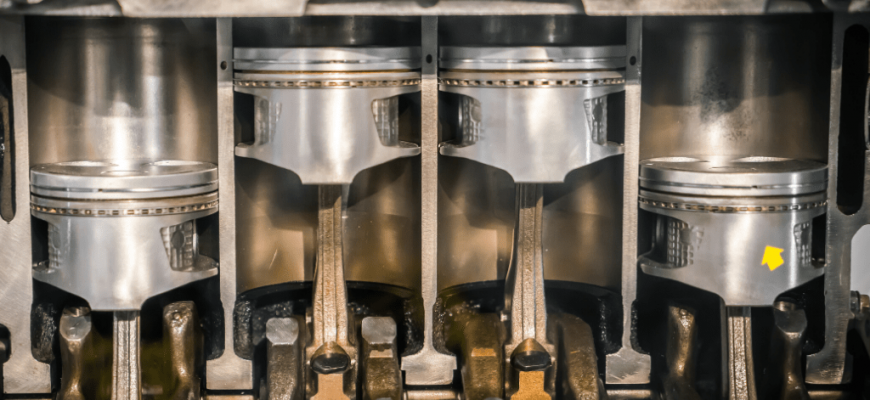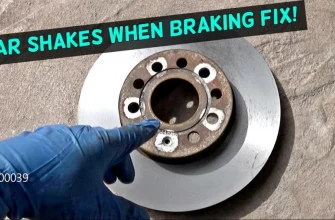When it comes to vehicle maintenance, understanding the costs associated with repairs can save you both time and money. One such repair that car owners may encounter is the replacement of piston rings. Although it may not be the most glamorous topic, knowing what to expect regarding costs can help you budget effectively and avoid unexpected expenses. This article provides a comprehensive overview of the factors that influence piston ring replacement costs and what you can expect during this process.
- What Are Piston Rings?
- Signs You Need to Replace Piston Rings
- Factors Influencing Replacement Costs
- Estimated Costs
- Additional Considerations for Piston Ring Replacement
- 1. Choosing the Right Mechanic
- 2. DIY vs. Professional Help
- 3. Long-Term Vehicle Maintenance
- 4. Warranty Considerations
- Understanding the Piston Ring Replacement Process
- 1. Diagnostic Assessment
- 2. Engine Disassembly
- 3. Piston and Cylinder Inspection
- 4. Ring Replacement
- 5. Reassembly and Testing
- Additional Costs to Consider
What Are Piston Rings?
Piston rings are essential components of an internal combustion engine. They sit in grooves on the piston and serve multiple purposes:
- Sealing: They create a seal between the piston and the cylinder wall, ensuring that combustion gases do not escape.
- Oil Control: Piston rings control oil consumption by scraping excess oil off the cylinder wall, preventing it from entering the combustion chamber.
- Heat Transfer: They help transfer heat from the piston to the cylinder wall, promoting proper engine cooling;
Signs You Need to Replace Piston Rings
Recognizing the symptoms of worn piston rings is crucial to maintaining engine health. Here are some common signs:
- Increased Oil Consumption: If you find yourself adding oil more frequently, it could signal that the piston rings are worn.
- Excessive Smoke: Blue smoke from the exhaust can indicate that oil is leaking into the combustion chamber.
- Loss of Power: A drop in engine performance and responsiveness may stem from compromised piston rings.
- Rough Idle: An uneven idle can suggest issues with the piston sealing.
Factors Influencing Replacement Costs
The cost of piston ring replacement can vary widely based on several factors:
- Labor Costs: Labor rates can differ significantly by location and shop. Average rates range from $75 to $150 per hour.
- Engine Type: The complexity of the engine can affect costs. Replacing rings in a V6 or V8 engine is typically more labor-intensive than in a 4-cylinder engine.
- Parts Quality: The cost of piston rings and associated components (like gaskets and seals) can vary based on whether you choose OEM (original equipment manufacturer) parts or aftermarket options.
- Additional Repairs: Often, replacing piston rings may necessitate other repairs or services, such as honing the cylinder walls or replacing other engine components;
Estimated Costs
On average, the total cost for piston ring replacement can range from $1,200 to $2,500. Here’s a breakdown of what you might expect:
- Piston Rings: $100 to $300
- Labor: $800 to $1,500
- Additional Parts: $100 to $700 (gaskets, seals, oil, etc.)
While piston ring replacement may seem daunting in terms of cost, it is a necessary repair that can significantly impact your vehicle’s performance and longevity. By recognizing the signs of wear and understanding the factors that influence replacement costs, you can make informed decisions about your vehicle maintenance. Always consult with a trusted mechanic for accurate estimates and to gain insights specific to your vehicle’s needs.
Ultimately, investing in proper maintenance will ensure that your engine runs smoothly and efficiently for years to come.
Additional Considerations for Piston Ring Replacement
While understanding the costs involved in piston ring replacement is crucial, several other factors can influence your decision-making process. Here are some additional considerations that can help ensure a smooth repair experience:
1. Choosing the Right Mechanic
Selecting a qualified and trustworthy mechanic is essential. Seek recommendations from friends, family, or online reviews. A reputable technician will not only provide an accurate estimate but will also explain the process in detail, offering insights into why the replacement is necessary and what it entails. A good mechanic will also perform a thorough diagnostic to determine if piston ring replacement is indeed required or if other issues might be contributing to the symptoms.
2. DIY vs. Professional Help
For those with mechanical skills, tackling the replacement as a DIY project can save on labor costs. However, this route requires a comprehensive understanding of engine mechanics and the right tools. If you’re not confident in your abilities, it’s often more cost-effective in the long run to hire a professional to avoid potential pitfalls that may arise from a DIY attempt.
3. Long-Term Vehicle Maintenance
Replacing piston rings can improve engine performance, but it’s also an opportunity to assess other aspects of your vehicle’s health. Consider scheduling routine maintenance checks and addressing any other potential issues while the engine is disassembled. This proactive approach can prevent more costly repairs down the line and enhance the longevity of your vehicle.
4. Warranty Considerations
If your vehicle is still under warranty, check whether the piston ring replacement might be covered. Many manufacturers offer warranties that can help mitigate repair costs. Always keep documentation of your service history, as this can be crucial in claiming warranty work.
Understanding the nuances of piston ring replacement costs can empower you as a vehicle owner. By being informed about the signs of wear, factors influencing costs, and making smart choices regarding mechanics and maintenance, you can navigate this repair with confidence. Remember, investing in your vehicle’s health not only enhances performance but also contributes to your safety on the road. As you ponder over those piston rings, keep in mind that a well-maintained engine is a happy engine—one that will serve you faithfully for miles to come.
Understanding the Piston Ring Replacement Process
Replacing piston rings is not just about swapping out old components for new ones. It’s a meticulous process that requires a deep understanding of engine mechanics. When you take your vehicle to a mechanic for this service, they will typically follow several steps to ensure everything is done correctly.
1. Diagnostic Assessment
Before any physical work begins, a thorough diagnostic assessment is conducted. This step is crucial in confirming that the piston rings are indeed the source of the problem. Mechanics may perform a compression test, a leak-down test, or inspect the oil for contamination to verify the condition of the rings. This ensures that you’re not replacing parts unnecessarily.
2. Engine Disassembly
Once confirmed, the mechanic will disassemble the engine components to access the pistons. This process can be labor-intensive, involving the removal of the cylinder head, intake and exhaust manifolds, and various other parts. Each component must be carefully cataloged and stored to facilitate reassembly;
3. Piston and Cylinder Inspection
During disassembly, the mechanic will inspect the pistons and cylinder walls for wear and damage. If the cylinder walls are scored or damaged, additional work such as honing or even cylinder replacement may be necessary, which can significantly increase costs. This inspection is a critical step that can reveal underlying issues that need addressing.
4. Ring Replacement
With everything disassembled and inspected, the actual replacement of the piston rings occurs. New rings are installed onto the pistons, making sure they are oriented correctly. This is where the quality of parts can significantly affect both the performance and longevity of the repair. Mechanics may recommend OEM rings for optimal fit and function.
5. Reassembly and Testing
After the new piston rings are in place, the engine is reassembled. This involves carefully putting back all the parts that were removed, ensuring that everything is torqued to the manufacturer’s specifications. Once reassembled, the engine will undergo testing to ensure that it runs smoothly and that the issues have been resolved. Mechanics might use diagnostic tools to check for any error codes or performance issues post-repair.
Additional Costs to Consider
While the primary focus is on piston ring replacement, it’s essential to consider other potential costs that may arise during the process. Here are some additional expenses that could impact your final bill:
- Gasket Replacement: It’s common to replace gaskets during an engine rebuild to ensure a proper seal. This cost can add anywhere from $50 to $300, depending on the gaskets required.
- Fluid Replacement: Oil and coolant may need to be replaced during the process, which can add another $100 to $200 to your bill.
- Cylinder Head Repair: If the cylinder head is damaged, it may require resurfacing or even replacement, significantly increasing costs.
- Timing Belt or Chain Replacement: If your vehicle has a timing belt or chain, it’s wise to replace it during the piston ring service if it’s due, adding to the overall expense.
Understanding the costs and processes associated with piston ring replacement is crucial for any vehicle owner. While the immediate financial outlay may seem substantial, consider it an investment in your vehicle’s longevity and performance. Regular maintenance and timely repairs can yield significant savings over time by preventing more severe issues down the line.










The breakdown of factors influencing replacement costs was excellent. Knowing what to expect can really ease the stress of unexpected repairs!
Great resource for anyone looking to learn about engine maintenance. The details on labor costs were particularly enlightening!
I found the section on signs you need to replace piston rings particularly helpful. It’s clear and easy to understand, which is great for someone not very car-savvy.
This article provides valuable insights into piston ring replacement costs. It’s informative and helps car owners budget effectively for repairs!
A well-written article that covers a topic many overlook. Understanding piston rings and their importance is crucial for every car owner!